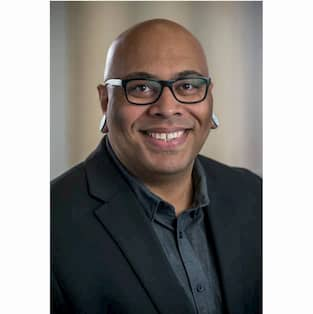
Throughout the history of social welfare, Black people have made ongoing efforts to address anti-Blackness and racism in the social work profession. However, the historical efforts and contributions of Black people have repeatedly been excluded from the histories of social welfare and social work. This talk will leverage historical texts, social work conference proceedings, and archival documents to highlight historical contributions to social work and social welfare made by Black individuals, leaders, communities, organizations, and movements that are often absent in the dominant literature of our social work profession. Topics of discussion will include historical Black contributions towards self-help, preservation, liberation, activism, and social justice as well as Black efforts to recruit, train, and employ Black social workers to confront anti-Blackness in social work while addressing the effects of racism on the Black community.
Bio
Justin Harty is a doctoral candidate at the University of Chicago Crown Family School of Social Work, Policy, and Practice. He earned bachelor’s degrees in both sociology and philosophy from the University of Illinois at Urbana-Champaign in 2011. He received his masters of social work from the Jane Addams College of Social Work at the University of Illinois at Chicago in 2013. After earning a master’s degree, he worked for three years as a foster care worker in Chicago, Illinois. He is a licensed clinical social worker serving child welfare involved fathers and provides father-focused trainings to child welfare, foster care, and family strengthening agencies around father involvement and engagement. Harty’s research interests include the outcomes and preparedness of young fathers aging out of the foster care system, father engagement in child welfare services, and Black contributions to the social work profession. He is currently conducting a qualitative dissertation research study on the experiences and needs of young Black fathers in foster care as they leave state care and transition to independent adulthood and early fatherhood. He also conducts historical research on Black contributions to mutual aid, social welfare, and social work history and is currently working with the Council on Social Work Education (CSWE) and several U.S. social work programs to better integrate the history of Black social workers into social work curriculum.



